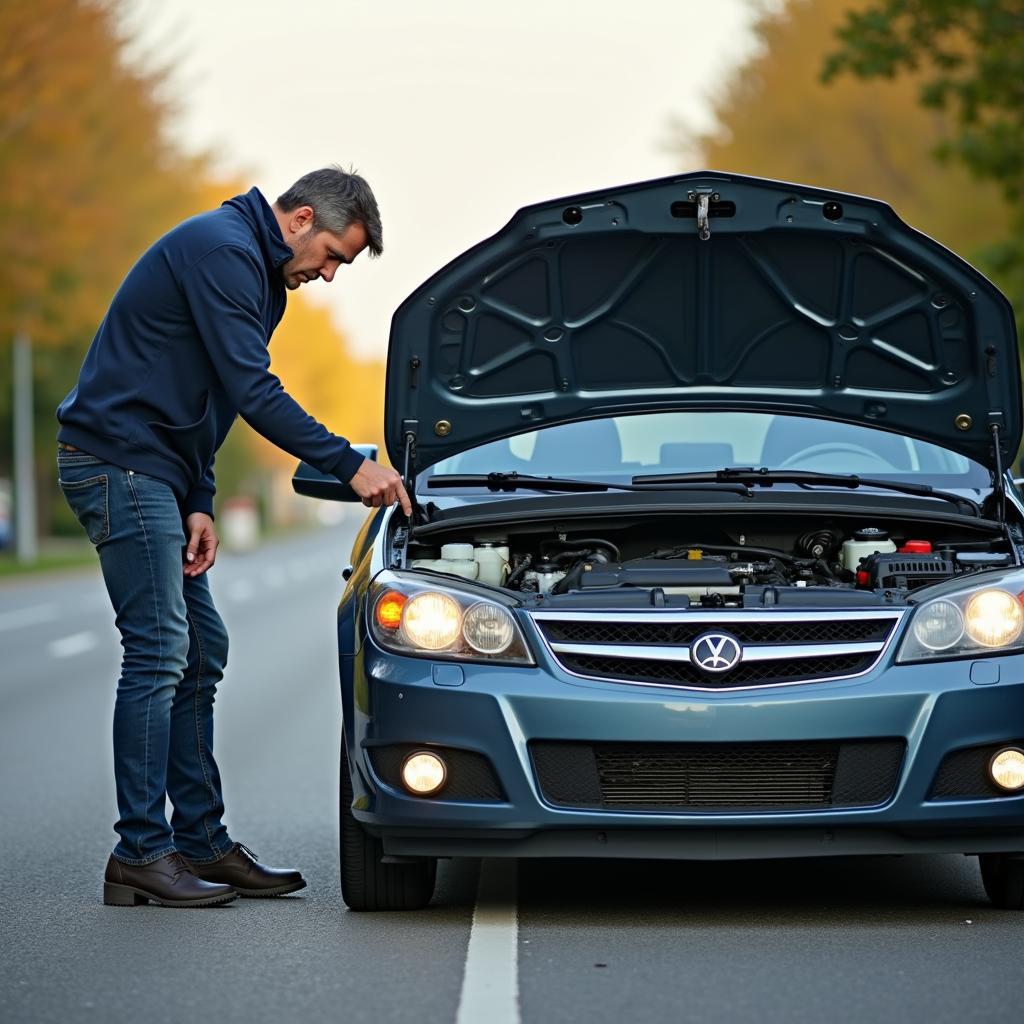When your car starts and then immediately dies, it can be a frustrating and concerning experience. This issue often points to a problem with one or more systems responsible for keeping your engine running after the initial ignition.
 Car Stalling After Start
Car Stalling After Start
Common Causes of a Car Stalling After Starting
Several potential culprits can lead to your car dying shortly after starting. Here are some of the most common reasons:
1. Fuel System Problems
- Faulty Fuel Pump: The fuel pump is responsible for delivering fuel from the tank to the engine. A failing fuel pump may not be able to provide enough pressure for the engine to continue running.
- Clogged Fuel Filter: A dirty fuel filter restricts the fuel flow to the engine, similar to how a clogged artery affects blood flow. This restriction can starve the engine of fuel after the initial start.
- Injector Problems: Fuel injectors spray a precise amount of fuel into the engine cylinders. If an injector is clogged or malfunctioning, the engine may not receive enough fuel to stay running.
2. Air Intake Issues
- Vacuum Leaks: Your engine needs the right mixture of air and fuel to operate. Vacuum leaks disrupt this balance, often causing the engine to stall shortly after starting.
- Dirty Air Filter: A severely clogged air filter restricts airflow to the engine, leading to an improper air-fuel mixture and potential stalling.
3. Ignition System Malfunctions
- Failing Spark Plugs: Spark plugs ignite the air-fuel mixture in the cylinders. Worn-out spark plugs may not be able to provide a strong enough spark for continuous combustion.
- Faulty Ignition Coil: The ignition coil provides the high voltage needed by the spark plugs. If the ignition coil is failing, it may not deliver enough power to keep the engine running.
4. Sensor Problems
- Crankshaft Position Sensor: This sensor monitors the crankshaft’s position and speed, sending vital information to the engine control unit (ECU). A malfunctioning sensor can disrupt ignition timing, causing the engine to stall.
- Mass Airflow Sensor (MAF): The MAF sensor measures the amount of air entering the engine. A faulty MAF sensor can lead to an incorrect air-fuel mixture, potentially stalling the engine.
5. Other Potential Causes
- Faulty Alternator: While a bad alternator might not directly cause your car to die immediately after starting, it can eventually drain the battery, leading to starting and stalling issues.
- Emissions System Problems: Components like the EGR valve or evaporative emissions system can also contribute to stalling if they malfunction.
Troubleshooting a Car That Starts and Dies
Diagnosing the exact cause of your car stalling requires a systematic approach.
- Check Engine Light: Is the check engine light on? If so, it’s crucial to get your car’s computer system scanned for trouble codes. These codes can pinpoint the problematic area.
- Listen Carefully: Pay close attention to any unusual sounds when the car starts and dies. Clicking, whining, or sputtering noises can provide valuable clues.
- Inspect for Visual Clues: Check for loose connections, damaged wires, or leaks in the engine bay.
- Fuel Smell: Do you smell gasoline when the car stalls? This could indicate a fuel system issue.
When to Seek Professional Help
While some car problems may be simple enough to diagnose and fix yourself, issues related to engine stalling often require specialized knowledge and tools. If you’re unable to pinpoint the cause of the problem or lack the experience to address it, it’s best to consult a qualified mechanic.
Conclusion
Experiencing a car that starts and then dies can be frustrating. By understanding the common causes and troubleshooting steps, you can better address this issue. Remember, seeking professional help from a qualified mechanic is always recommended if you’re unsure about the diagnosis or repair process.

